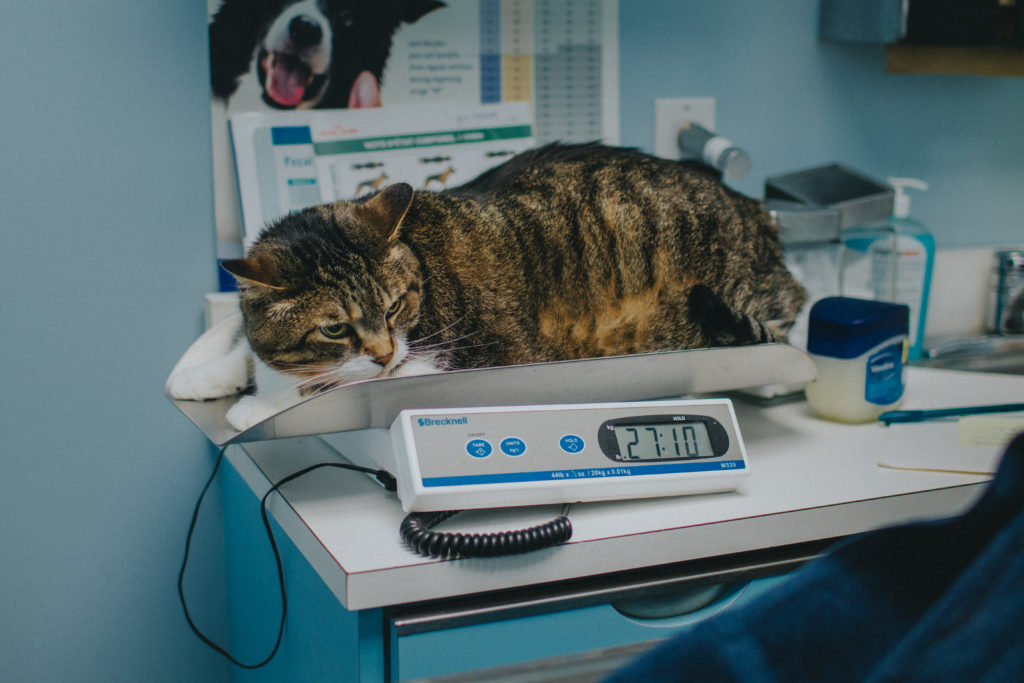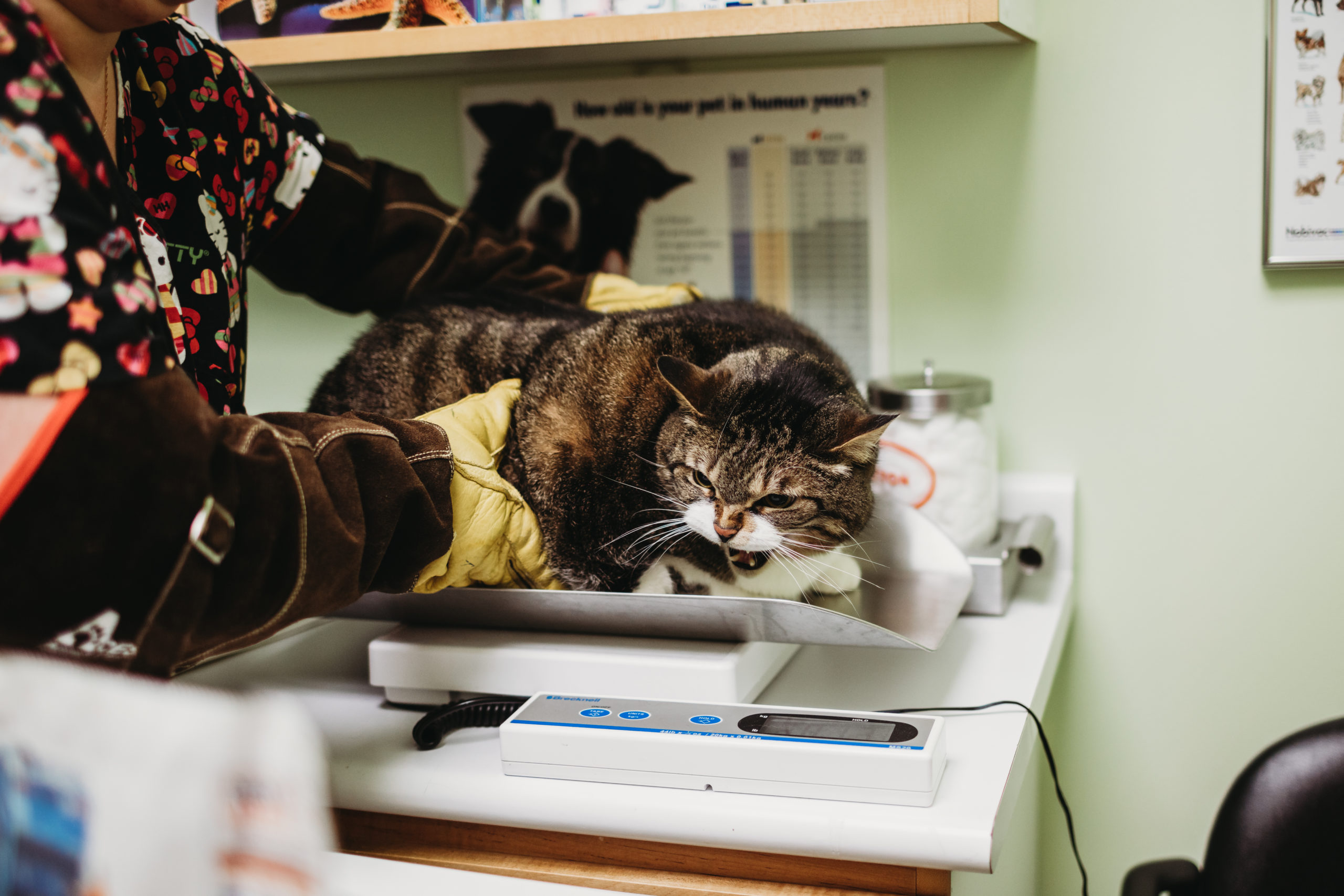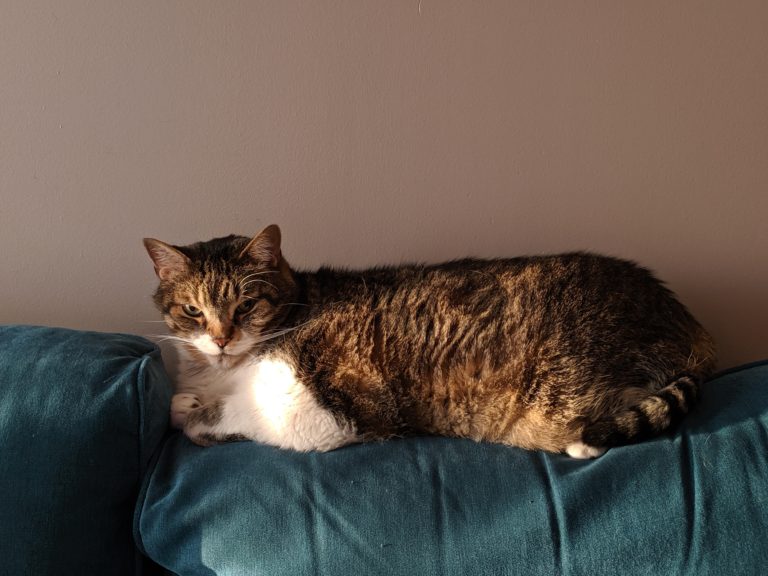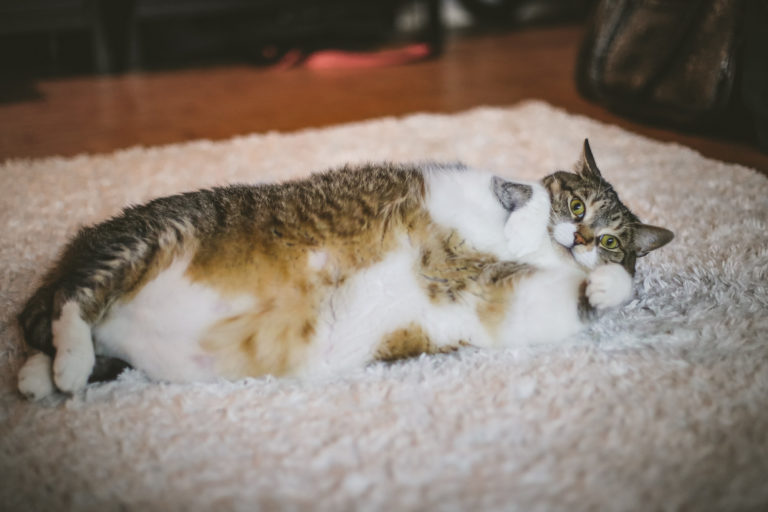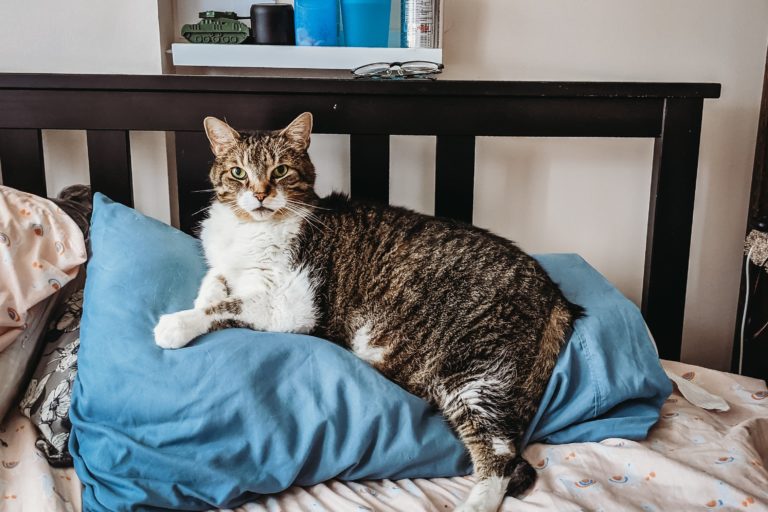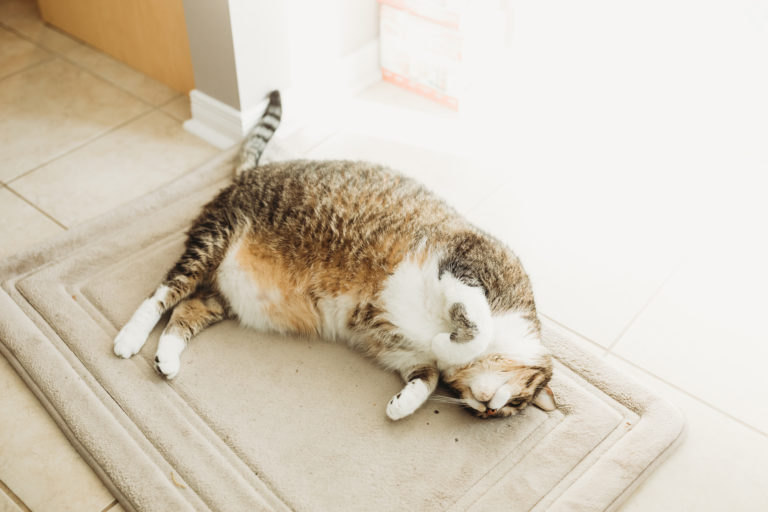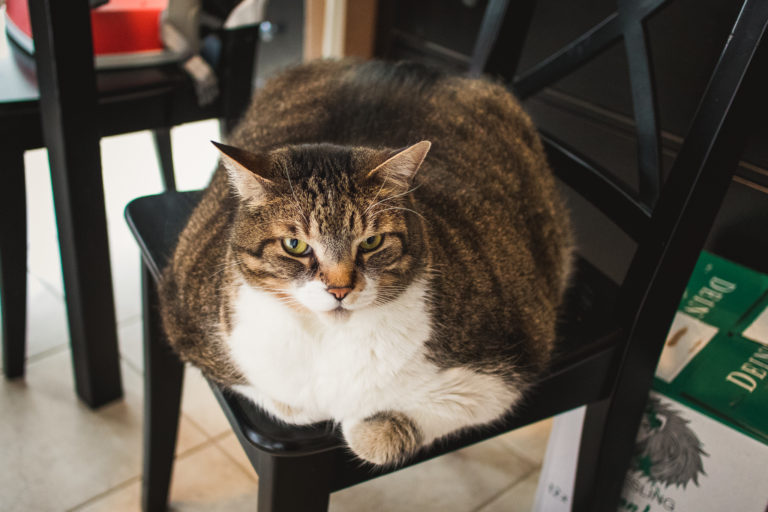Why Do People Overfeed Their Cats?
When it comes to feline obesity, a lot of folks jump to the conclusion that owners must be “abusive” and must be “force feeding” their cats in order to get their cats fat. This is not speculation – this is our lived experience. As someone who has had (and still has) an overweight cat, I have the answer for you. Why do people overfeed their cats? Truthfully, 9 times out of 10, it’s due to lack of education.
If you want to stop owners from overfeeding their cats, you have to take a step back and put aside the conclusions you’ve come to through your own thoughts and feelings. Removing your own biases is key here. Once you’ve done that – you need to ask yourself why. WHY are owners overfeeding their cats? Is it intentional? Not intentional? Either way – why? Why, why, why… keep asking why until you can’t ask why anymore. And you’ll come to the conclusion I already stated above…
Why do people overfeed their cats? Because they lack the education and guidance necessary to feed appropriately.
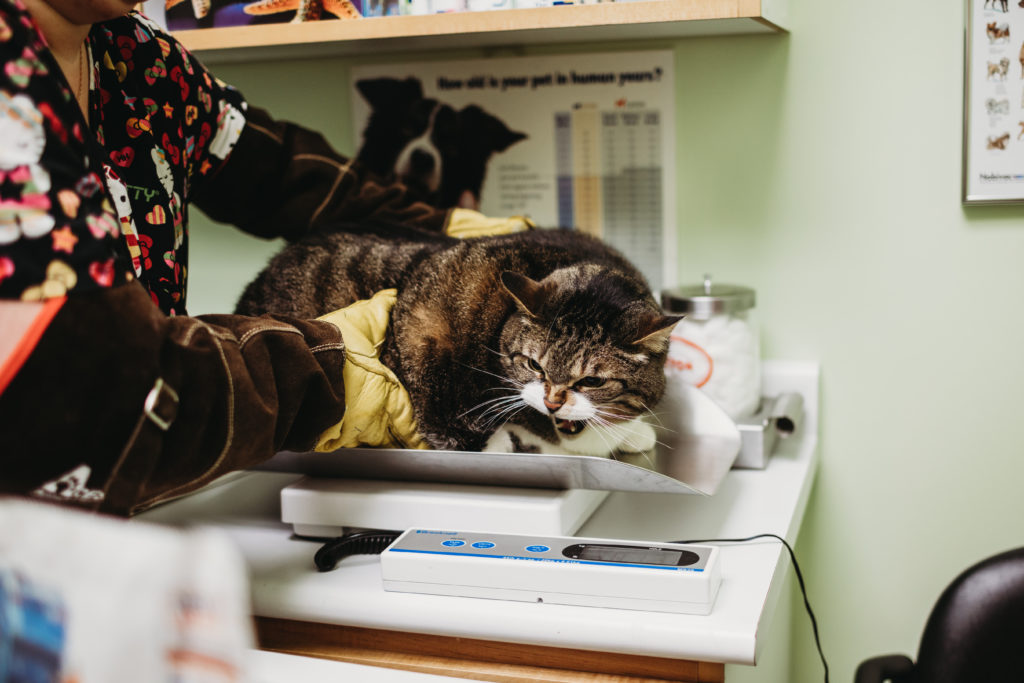
Intent Matters
Intent and impact are both very important things to recognize in all situations, but especially here. While the impact of overfeeding a cat is that they gain weight (and become at risk for obesity-related complications), if you don’t understand the intent behind why an owner is overfeeding, you’ll never be able to fold the problem.
Why? Because…
The solution to the problem needs to match with the intent.
Many people, including quite a number that we’ve encountered in our own lived experience, jump to conclusions about “why” a cat is overweight and along with this conclusion, come many of that person’s own biases. They do not consider how the cat may have become overweight nor do they consider to ask the owner about their history with the cat thus far and what has or has not been tried. They jump to accusations of abuse, neglect or “clout chasing”.
Why do People Overfeed Their Cats: 5 Reasons Why
We’re going to take a logical, methodical and educated approach to understanding why people overfeed their cats. We’re going to base our conversation on the culpability model by psychologist Professor James Reason. Professor Reason’s principal area of research has been the management of human error and systems failures. This means that Professor Reason specializes in why humans make mistakes.
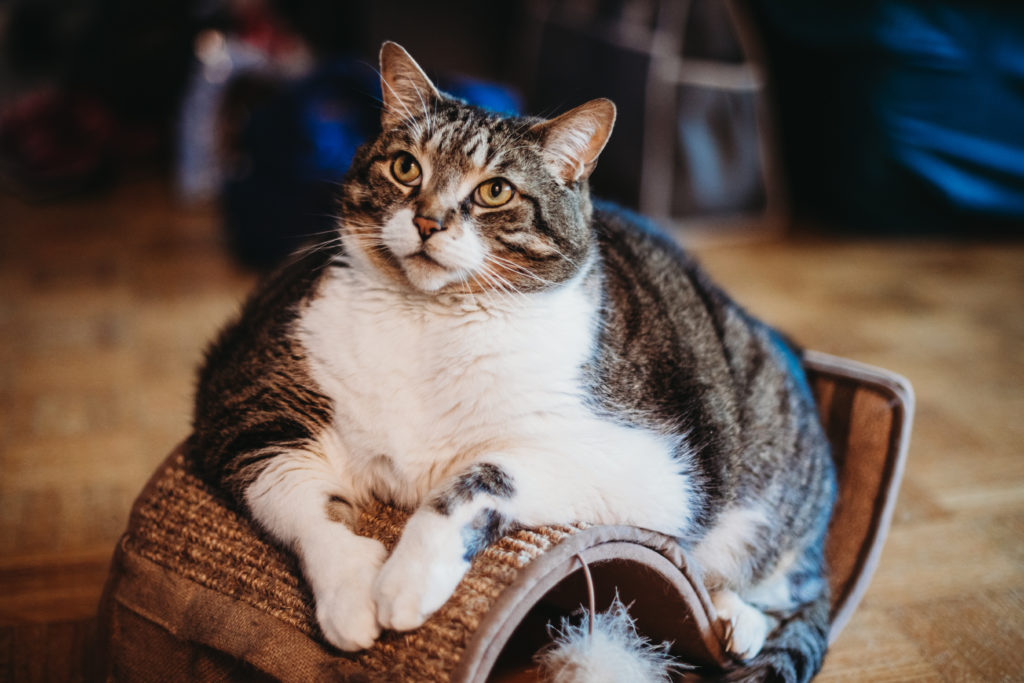
#1 – Deliberate Harm
Deliberate harm is somewhat self-explanatory. It means that a person was of sound mind to know the risks associated with what they were doing, were aware that the risks would be significant and/or negative, but chose to do it anyways.
So what would purposeful overfeeding sound like?
- “I think fat cats are so cute – I’ve always wanted one so I feed him a little extra!”
- “I want them to go viral online and fat cats always go viral – I want them to get chonky”
- “I don’t even have the time or energy to consider putting them on a diet, it all seems too hard. I just don’t bother.”
- “I don’t care enough to put them on a diet, I have zero f&cks to give”
How to help if you think a cat is being purposefully harmed by overfeeding
- Go through every piece of media that this person has put online. Websites, instagram, facebook, tiktok – everything.
- Read all the media, including comments, and screenshot anything that indicates absolute, definitive proof that an owner is doing this purposefully
- This part is so important to get right. You cannot be screenshotting things that you speculate are harmful, it needs to be solid proof.
- Why? Because you’re about to make a serious acusation that can have significant impact on the humans and the animals as well as take up a lot of already limited resources to investigate.
- If you’re caught making false claims and false accusations, the owner could have grounds to persue you for harassement, defamation or other damages depending on the specifics of the situation.
- Research to see if you can figure out who their vet is – geotags can sometimes help with this
- Once screenshots are taken, reach out to the owner directly to seek clarification. Tell them your concerns and ask them if they can explain to you how you may have gotten this impression
- If you still believe that harm may be occurring, contact their vet and ask how they can be investigated. If you cannot find their vet, contact an animal welfare agency in their geographical area regarding how the situation can be investigated.
From my personal experience, as someone who has been accused of overfeeding their cat for views, likes and internet clout, I can say with certainty that those who are “concerned” about the cat are in fact the clout chasers. They don’t bother even reading other posts on our accounts to see that Hercules was on a diet. This goes to show how little they actually care about the animal and that they just want to use myself (and other owners of overweight cats) as a punching bag.
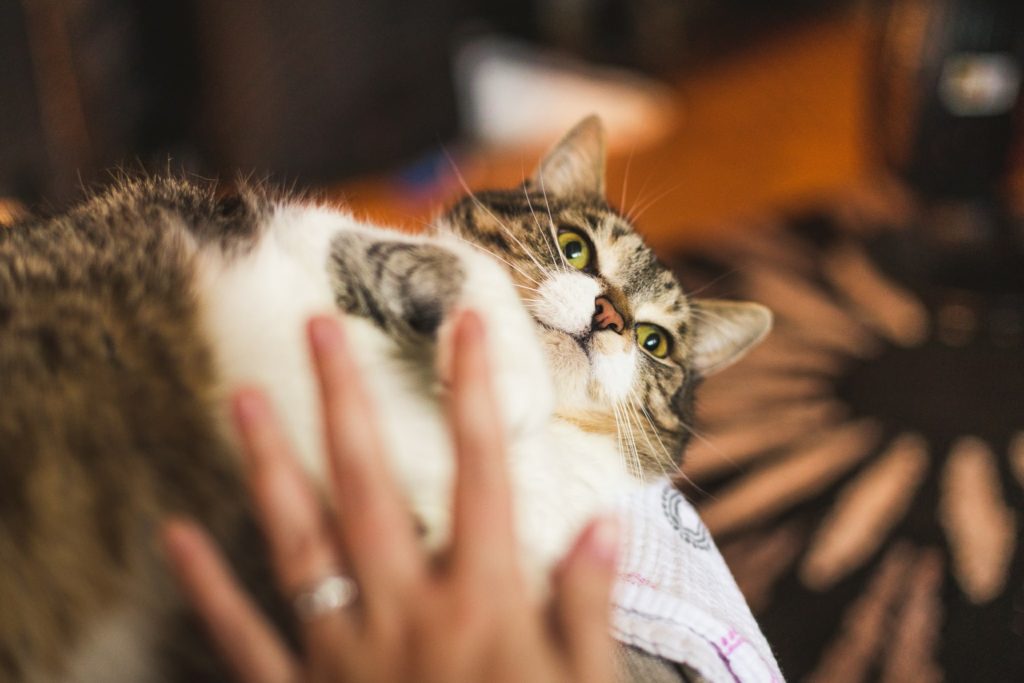
#2 – Incapacity: Physical or Mental Health Related Circumstances
Is the owner facing any capacity challenges that may be making it difficult for them to properly execute a plan.
What would incapacity reasons look like?
- A person has limited mobility and feeds portions larger than recommended because it saves them a trip to the fridge for leftovers
- A person may put out a large bowl of kibble without measuring because they’re suffering from significant depression, and this is what they can achieve to at least ensure the cat has food
How to help if you think an owner may be facing incapacity reasons
The help that you can provide in these situations is going to be specific as to the type of incapacity that the owner is facing. Your help would be either to the owner so that they can dedicate more resources to the animal, or to the animal directly.
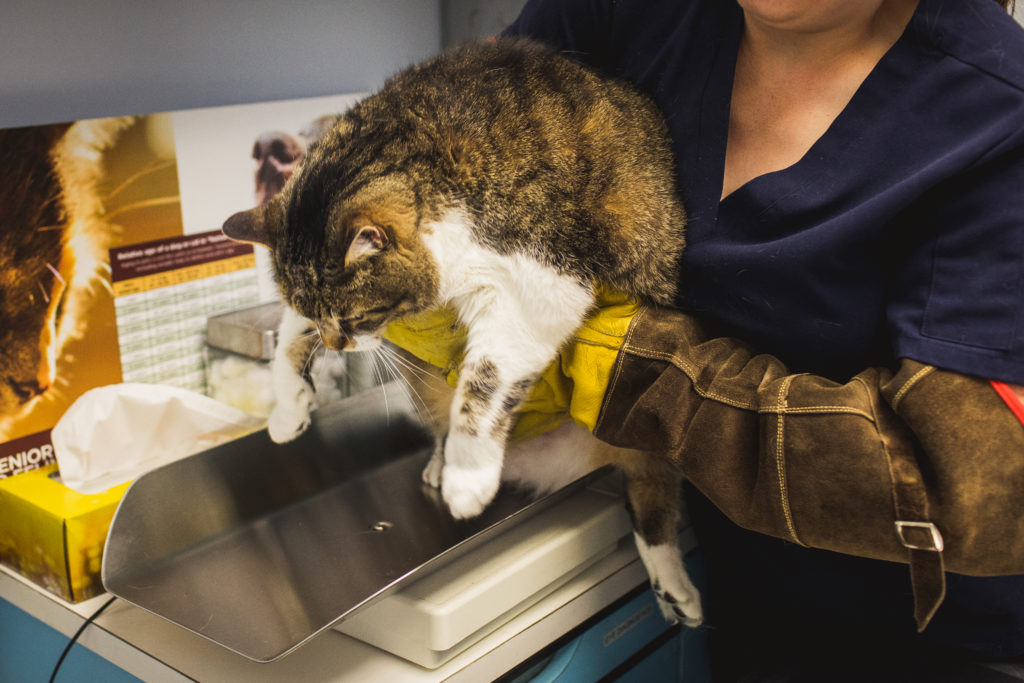
#3 – Foresight
This can be a more commonly seen reason for why people overfeed their cats. In a foresight test, you have to ask if the owner purposefully diverted from an agreed-upon, safe plan? Did they have the resources to proceed safely and appropriately but still chose not to?
Don’t forget, like in point #1 above – this must be approached with facts only, not with speculation. This means you need to have proof of admission that the owner was aware of an agreed-upon plan and then purposefully diverted from that.
What would this sound like?
- “I know he’s supposed to be on a diet, but he’s just so cute when he’s chonky, so I don’t bother with the diet.”
- “Yeah she was on a diet most of last year, but it just got so hard and annoying so I stopped.”
How can you help?
Most folks who are in this position need a combination of education as well as support. Education is important because when an owner doesn’t truly understand why they’re being asked to change something, they have a harder time sticking to a plan. Support is important because like anything in life – we all hit roadblocks. Life isn’t about just focusing on one thing at a time, we often have many things going on in life and have to prioritize differently. If someone has stopped their cat’s diet because they’re overwhelmed with other things, support (not shame!) is going to be one of the keys to getting them back on track.
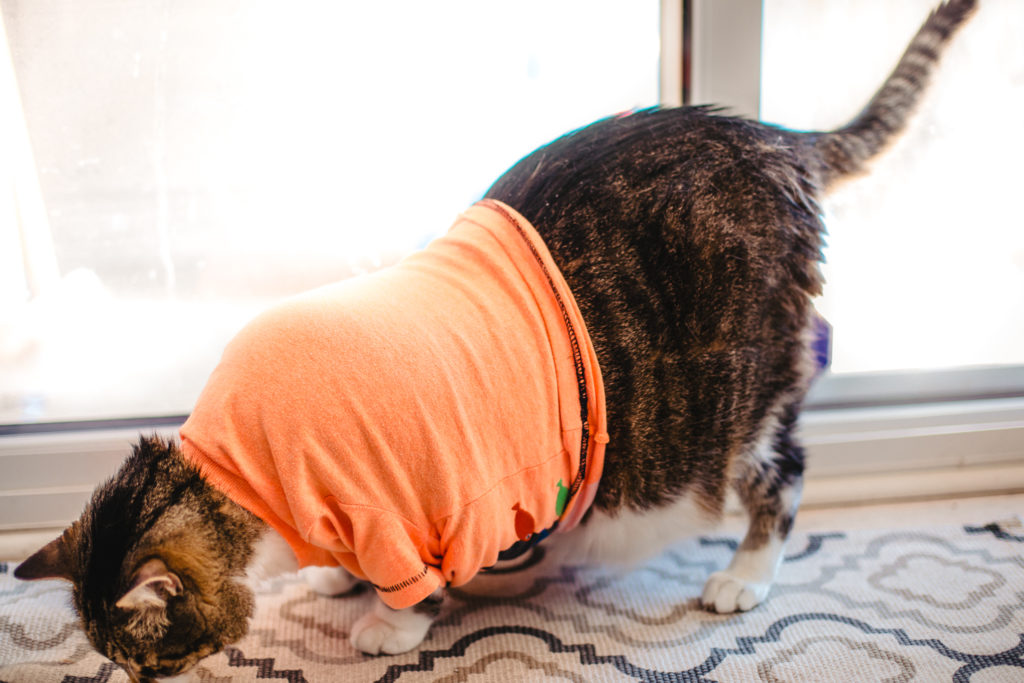
#4 – Substitution
Finally, when trying to understand why some owners overfeed their cats, you need to put someone else in the owner’s shoes and ask a few questions. The substitution test is all about trying to figure out if another person with the exact same background knowledge and exact same skill set and exact same experiences would have made the same decision.
What would this look like?
This one is a bit harder to spot as a single experience; you often need to engage with the person to learn more about the situation. Here are 2 examples:
| Substitution Test: Systemic Failures | Substitution Test: Intentional Failures |
|---|---|
| Person 2: “Hey, your cat is looking pretty chonky, I think you may be overfeeding them.” Person 1: “I know, they’re big! I’ve asked my vet a few times and they say to just follow the chart on the bag for how much to feed them.” Person 2: “Have you asked your vet on more than 1 occasion?” Person 1: “Yes I have! I’ve been talking to them off and on for a year now. They’ve even given us lower-calorie food and said to feed according to the chart. It’s not helping. Maybe they’re just supposed to be big?” Person 2: “Some cat breeds can be large, yes, but more in length or height – not necessarily width. I’ve had cats for many years, quite a number of them being special needs and on weight loss plans. I have experience in this. Have you ever had a cat before?” Person 1: “I know, but I’m following my vet’s advice. This is my first cat, so I don’t know why I would not listen to my vet. They’ve been so kind and really great to work with, I assume they know what they’re doing.” Person 2: “It looks like you’re relatively inexperienced – that’s okay, we all start somewhere. There’s not a lot of education for pet owners about obesity in animals, although some clinics are starting to make nutrition support a standard process of the spay/neuter experience because it’s extremely common for cats to gain weight after sterilization. If nobody’s given you guidance, you can only do the best you can do – but are you open to be sharing some resources with you so you can educate yourself more and then maybe get a second opinion from a different vet?” | Person 2: “Hey, your cat is looking pretty chonky, I think you may be overfeeding them.” Person 1: “I know, they’re big! I’ve asked my vet a few times and they say to just follow the chart on the bag for how much to feed them.” Person 2: “Have you asked your vet on more than 1 occasion?” Person 1: “No – why bother? They’re not worried so I won’t be. They’re the professional, not me. It’s not my job to question them. Besides, he’s probably just meant to be a large kitty.” Person 2: “Some cat breeds can be large, yes, but more in length or height – not necessarily width. I’ve had cats for many years, quite a number of them being special needs and on weight loss plans. I have experience in this. Have you ever had a cat before?” Person 1: “I’ve had cats my whole life too, I know what I’m doing. They would be miserable and meowing the whole time if I put them on a diet. I don’t want to deal with that. They’re happy as it is, why rock the boat?” Person 2: “So, like me, you’re an experienced cat owner. You understand that while obesity doesn’t cause death, it can increase the risk for other problems going forward and that can decrease your cat’s quality of life yet you don’t want to do anything about that? Are you really sure that’s wise?” Person 1: “I know the risks, I’ve tried a diet and they become insufferable. I made the choice to discontinue diets in the past and I’m not starting one now. I’m accepting the risks, if they become diabetic then I’ll deal with that – but I’ve had skinny cats have diabetes too, so whatever. Leave me alone.” |
How can you help?
As we mention in the foresight test, helping in this scenario can involve education and support when this test indicates that the issue is likely systemic. It also involves advocacy towards systemic improvements to prevent problems for the future. Anger, shame, blame, or spewing fear at owners by telling them “your cat is going to die” is absolutely not the way to help.
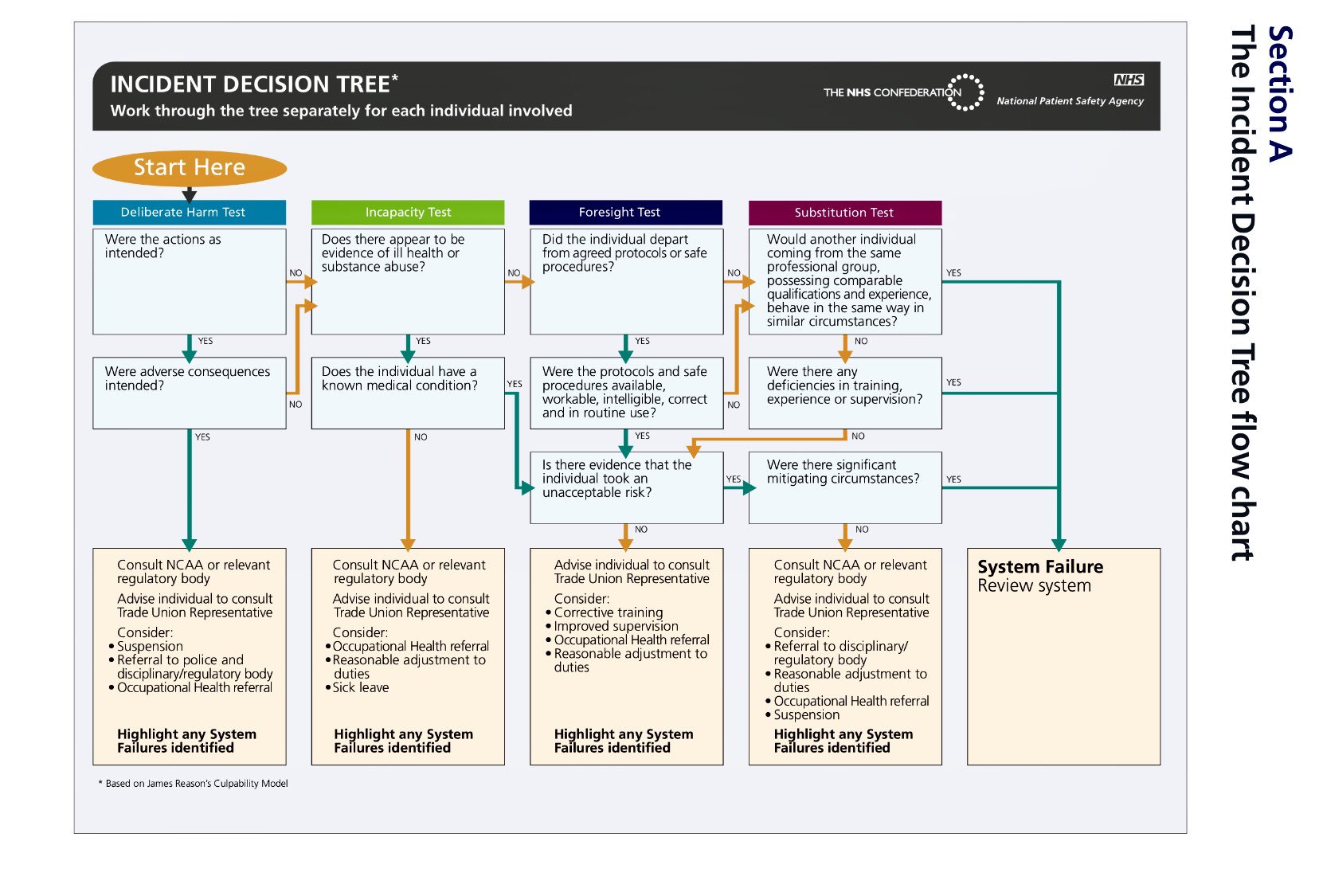
So why do some owners overfeed their cats? The #1 Reason Is…
It’s a systemic issue with education being the primary factor, followed by a lack of guidance both within a vet office and outside.
When a cat is spayed or neutered, it’s exceptionally common for them to gain weight. There are many reasons a cat can gain weight in addition to sterilization, and sometimes these issues overlap and a cat will gain weight exceptionally fast. More and more vet offices are making nutritional education a part of the neuter/spay program, but it’s far from the majority of clinics. There are still many veterinary clinics that don’t even have a nutrition or weight loss program. You can’t expect an owner to know more than their vets.
Lack of guidance also exists on food charts that are located on bags or cans of cat food. Even the “diet” and “indoor cat” formulas have food charts that generally overestimate the number of calories your cat needs. This means that even if someone has the best of intentions and is using that chart religiously, they’re still setting themselves up for failure.
Education, support, and systemic change are how we will reduce the number of owners that overfeed their cats.
